
July’s Gender-Based Violence Workshop in Loikaw
2 August 2018
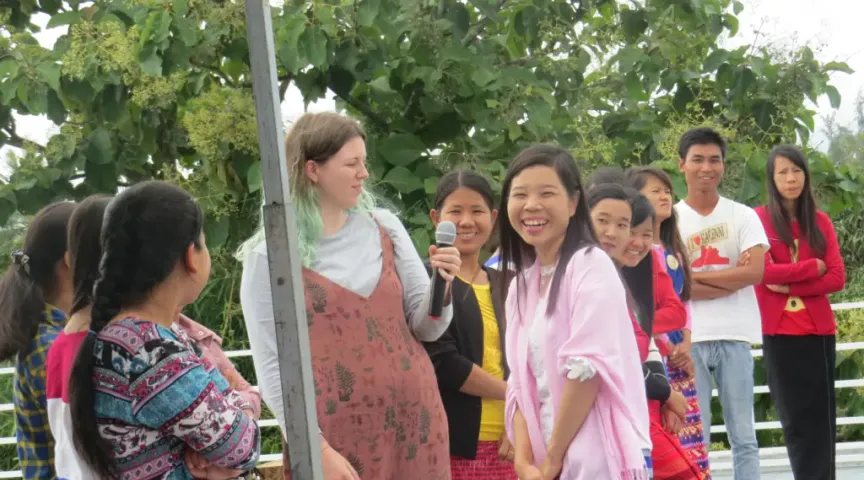
On the 30th – 31st July, KNWO staff representatives conducted a two-day workshop in KNWO’s head-office town of Loikaw. The aim of this two-day program was to reunite the Education Advocacy Team (EAT) volunteers to feedback on the training programs conducted between 2013 – 2015, and the project implementation since then. There was a lot of discussion to be had around problems encountered, how best to review current project structures and brainstorm for the future in how KNWO should and will target gender-based violence (GBV) in the Kayah State.
This was an exciting event as it was the first time since 2015 our EAT members have been able to meet altogether as a group and have this essential discussion. In 2013 – 2015 KNWO and the EAT was given enough funding to cover that time-period but after 2015 a lack of funding for KNWO has previously prevented organised feedback and continuous training – This year with funding from The British Embassy also known as the Foreign & Commonwealth Office (FCO) and support from our partner the Finnish Refugee Council (FRC) KNWO is now able to offer regular, yearly conferences and workshops for EAT elected representatives.
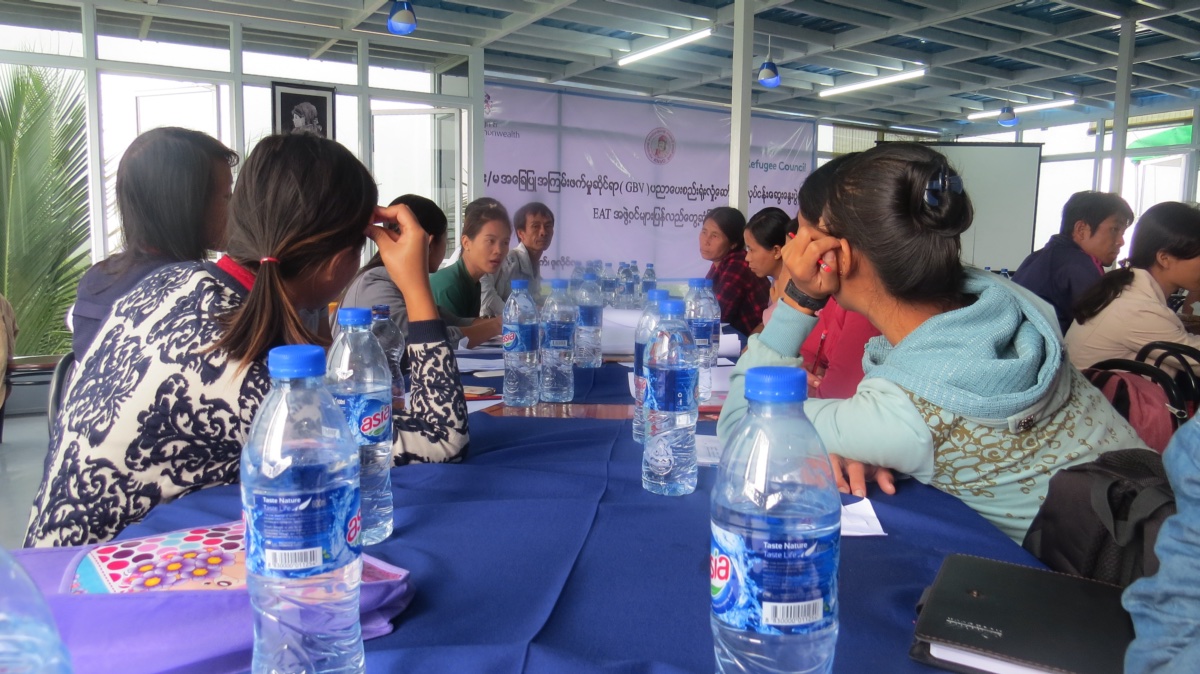
Day one of this workshop focused on allowing for team-members from different townships to present their experiences of working in the safe-houses and case management. Different townships have different circumstances and community dynamics which present unique sets of problems for our volunteers. By discussing the individual experiences of our 7 townships KNWO can understand the varieties of GBV problems in the state and are able to plan accordingly with future training thanks to the feedback of those volunteers on the front-line.
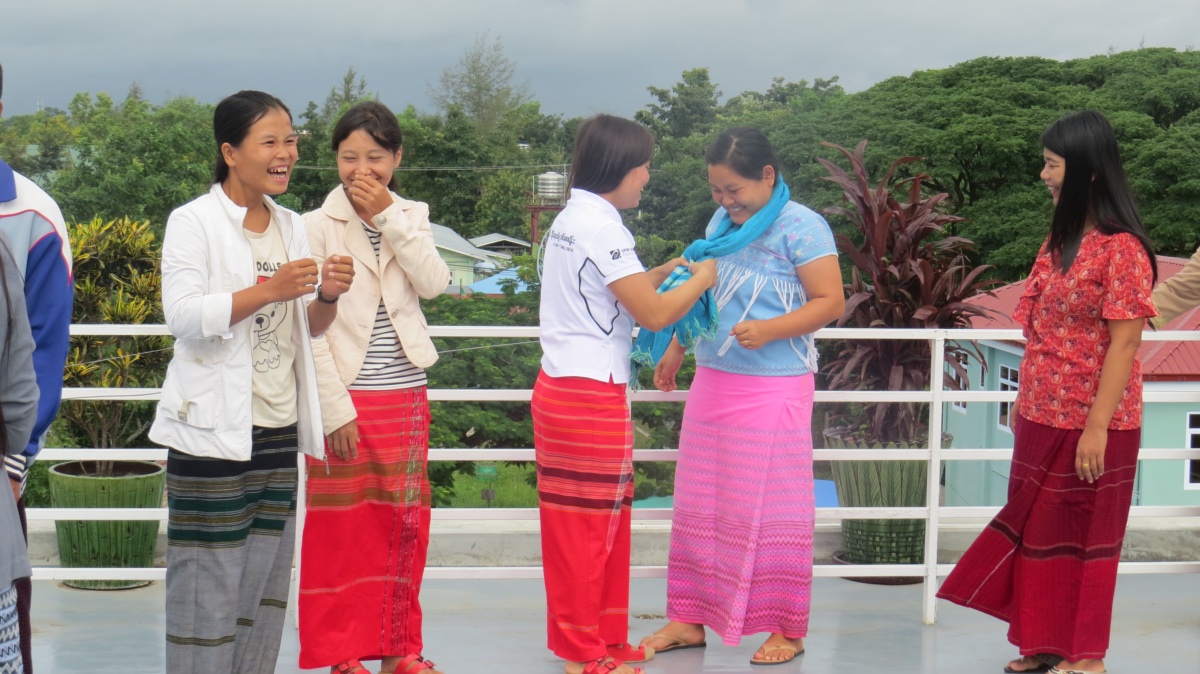
Our first day proved revealing with anecdotes from staff showing the scope of problems they have encountered with implementing the GBV prevention projects. Common issues included:
- Language barriers: Often in rural townships Burmese is not the main dialect widely spoken by villagers. Local dialects and languages are not always spoken by EAT volunteers which leads to huge difficulties with awareness raising, education, support and counselling for survivors.
- Transportation Issues: This is usually caused by lack of funding for volunteers to get to areas in which they need to operate but there were also difficulties with poor roads and poor weather conditions in certain areas which made travel difficult and a lack of cars amongst volunteers and staff.
- Resistance to the project from Village Leaders: EAT members discussed difficulties with moving beyond a local level for resolving cases and disputes between survivors and perpetrators. Often the cases would not follow the appropriate legal process and would be settled with reparations from abusers toward the victims, ordered at a local level:
“Because of the drug addiction in our community or the families some of the people will use alcohol and drugs as a trigger for violence. We discuss this with village leaders and the victim and the abuser – but we can encounter difficulty as there is no higher authority than the village leader and DV cases are handled on a village level only – if the ETA or survivor is not happy with the outcome they cannot go higher with their case.”
Feedback from EAT member
- Safety Concerns for Volunteers: Volunteers have been met with threats of violence themselves from abusers when they try to support survivors. Several instances resulted in uncompleted cases as it was no longer safe for our volunteers to pursue justice and support for survivors.
- Lack of training since 2015: Domestic violence and family violence is complicated; often intertwined with these cases are incidents of sexual assault, rape and child abuse. Our EAT members are currently equipped with knowledge and training to handle domestic violence cases – but have had difficulty managing incidents of other gendered violence due to knowledge gaps in these processes.
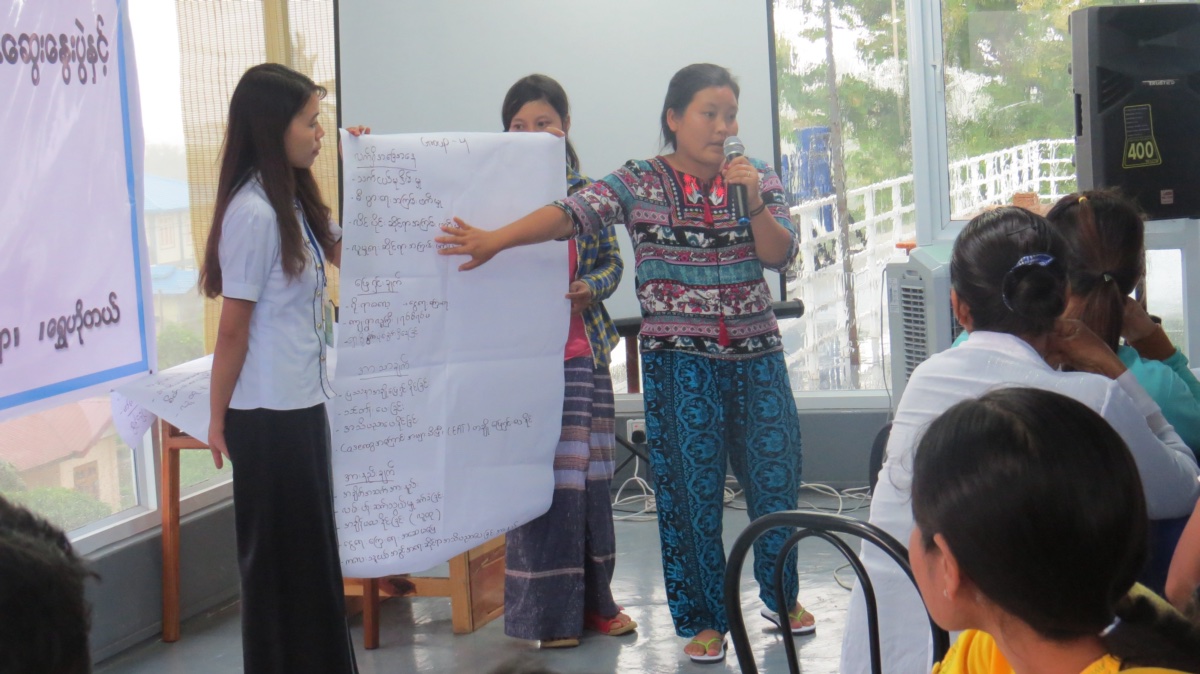
However, the years have not been without success; volunteers were able to also share positive anecdotes about the impact KNWO and the EAT have made:
- Education and Awareness: One of the most powerful tools we have is changing the mind-sets of abusive households and communities that normalise abuse through education.
- Saving the lives of vulnerable women: Volunteers reported that if they had not intervened women would have certainly died at the hands of their abusers.
- Able to pursue justice for survivors on a state level: With the right knowledge even when the EAT had to stop direct involvement they were able to empower women with the confidence and the knowledge to move above the village level and pursue criminal justice.
- Personal Development: EAT members reported they had grown hugely in their confidence and felt able to deliver the programme successfully. EAT members in particular who had previously been denied access to higher education felt the training and program had been incredibly valuable to increasing their knowledge and skill sets.
“When we go to meet the villagers they get to know the real sitution of their own communities – they don’t realise how bad it is until we tell them. Through our work the survivors know how to follow the legal process and they access valuable information through us. We are able to facilitate co-operation and conversation between survivors and external groups.”
Feedback from EAT member
With this honest feedback and open discussion KNWO was able to make informed decisions on training processes and project planning going forward with the input of those who will implement the project and training practices.
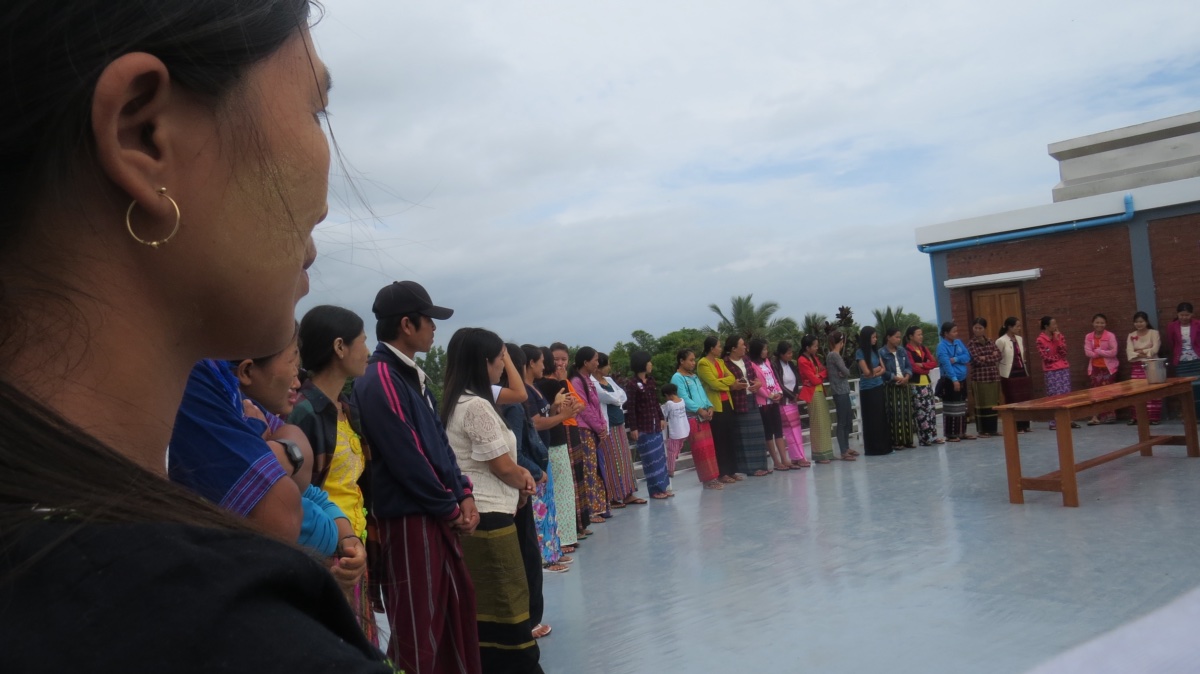
Day 2 then, focused on planning for the future and open discussions amongst the volunteers and staff about how they would like to proceed. Together, we have created the following structure for the future of the EAT:
During the workshop 3 representatives from each township have been selected to receive in-depth and up-to-date GBV training in the month of September 2018 – each township also selected one substitute representative if one of the 3 elected had a change in circumstance and would no longer be able to attend or deliver the program. The aim of this is to equip the representatives sufficiently to be able to go back to their own townships and train the EAT members on a local level. Of the 3 electives, 1 will be elected to return to KNWO later for complete training on legal processes to then be shared with the community; including policy, village leaders and health-care professionals.
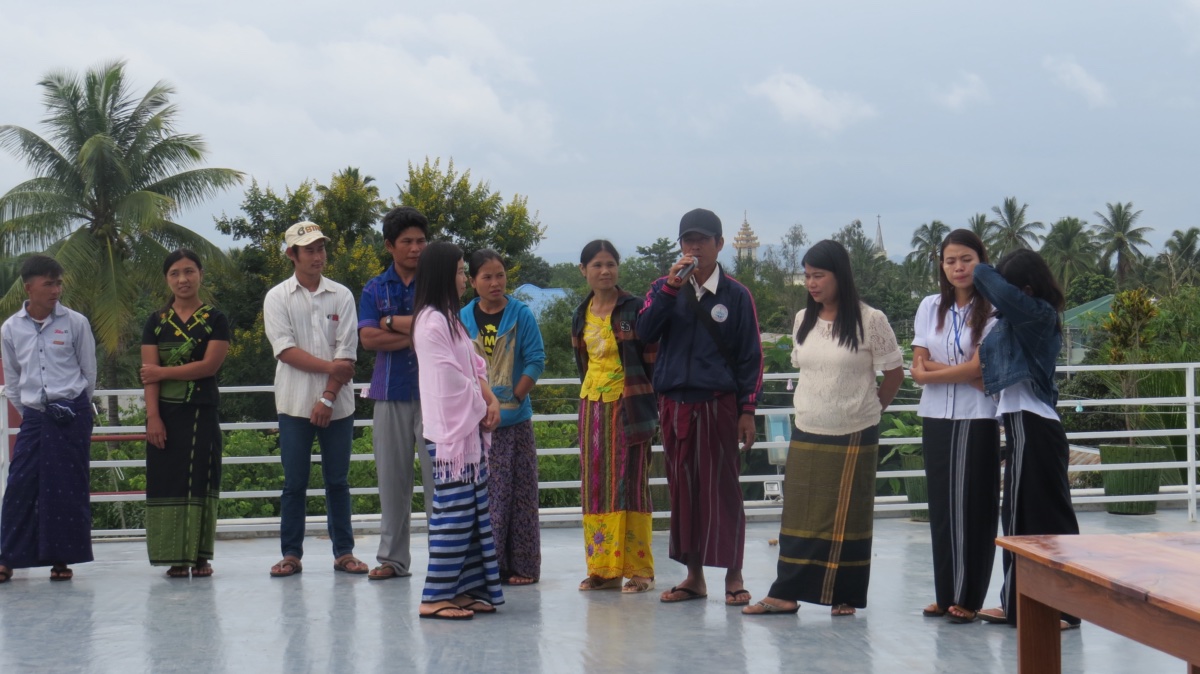
Other initiatives decided upon were a 24 hour helpline for EAT to be able to contact KNWO staff, as well as a commitment from KNWO staff to go into townships once a week to provide hands-on support for the EAT.
As part of our education and awareness programme KNWO is excited to announce we will be creating an educational video based on-real life cases in order to raise awareness and evoke empathy for survivors. We will also be creating a cartoon booklet as part of our materials to assist EAT.
Schedule for KNWO and EAT proposed plan
September: 3 day GBV training course will take place for the elected representatives.
November – December: Representatives will return to their townships and give training there.
December: Trainers will train police officers, health-care professionals and village leaders on GBV.
November – January 2019: From the 21 representatives they will vote on one individual from each of the 7 townships as to who will receive the in-depth legal training in 2019 (A 3 day training course)
February: Trainers will give government-staff training on GBV in the Bawlakhe and Loikaw township.
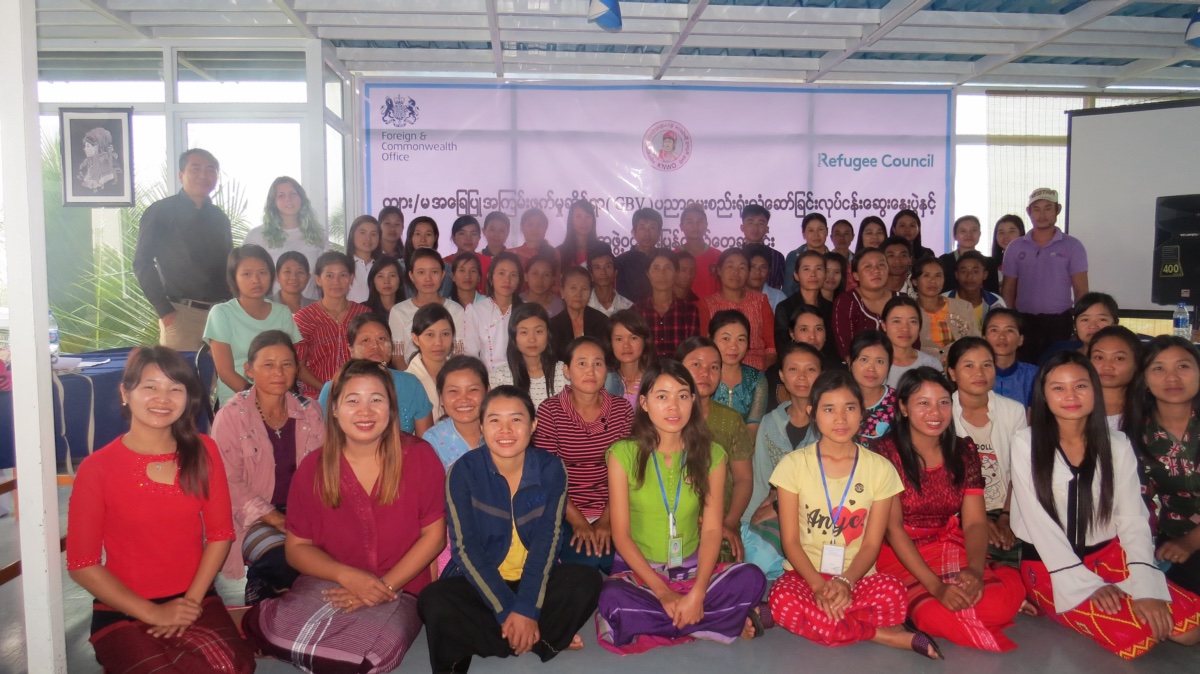

Karenni National Women's Organization (KNWO) is a non-profit community-based organization. KNWO was founded in 1993 by Karenni women who fled to Thailand seeking asylum from Myanmar's brutal military regime.